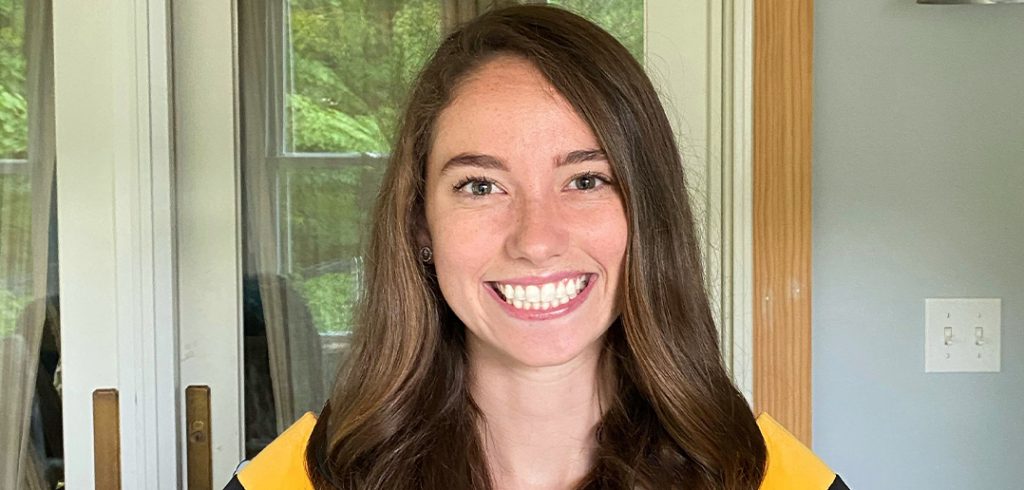After graduating from Fordham College at Rose Hill with a degree in chemistry in May 2020, Mary Kate Caucci began a doctoral program in the field at Penn State University in the fall. In addition to taking classes, she is a teaching assistant, teaching a general chemistry lab and leading two general chemistry recitation classes. She’s also been working with three different lab groups before deciding which one she will join to pursue her Ph.D. research beginning in the spring. While Caucci is open to working in academia or in a private or national lab after her studies, she knows that she wants to “continue to collaborate with incredible scientists to solve problems and discuss strategy to provide newfound insight into the scientific community and beyond.”
What are some of the reasons why you decided to attend Fordham?
I fell in love with Fordham’s campus and its location. I always wanted to go to school in or near a city, and Fordham had the best of both worlds. It had a beautiful campus and was located in New York City. Another reason I decided to go to Fordham was for its liberal arts curriculum and its Jesuit values, which emphasized the care and cultivation of the whole person. I had opportunities to take classes that wouldn’t normally be offered to chemistry majors.
What do you think you got at Fordham that you couldn’t have gotten elsewhere?
Fordham’s access to New York City provided a tremendous opportunity to [translate]what was being taught in class to learning beyond the classroom. I was able to go to the Metropolitan Museum of Art to see famous pieces I had just talked about in my art history course. I attended special exhibits for a history class. I did a tour at the Lower East Side Tenement Museum for a sociology class on migration, and I even had a biology lab take place in the New York Botanical Garden right across from campus.
Did you take any courses or have any experiences that helped put you on your current path?
Researching with Joshua Schrier [the Kim B. and Stephen E. Bepler Chair Professor of Chemistry at Fordham]had an incredible impact on placing me on my current path. He introduced a whole new perspective of science and chemistry. I got involved in conducting research later than typical chemistry students. I was initially intimidated [about getting]involved in research because I always felt I never knew enough, especially when it came to computational chemistry research.
Working with Professor Schrier, I realized I didn’t have to know everything right from the beginning. This was my first experience doing any form of chemical research, and I accomplished far more than I ever thought possible. I was introduced to many aspects of computational chemistry, including database mining, computer modeling, data curation, programming, supercomputing, and generating chemical data analysis. I collaborated with other scientists, attended my first conference at the MERCURY Consortium, and reviewed a manuscript for a textbook titled Machine Learning in Chemistry.
Researching with Professor Schrier inspired my scientific inquiry. I’ve come to appreciate the extraordinary fact that what we do in scientific research is continuously unique. Every moment in research was an opportunity to become closer to answering seemingly unsolvable questions or to positively impact society.
What are you optimistic about?
Although our efforts may sometimes feel insignificant, I am optimistic that our actions do have meaning and make a difference in the world. So, any action, however small, is quite powerful. I’m also optimistic about the compassion we can encounter from others, as well as the kindness we can deliver to others in our day-to-day lives.

